Wearable Cardiac Defibrillators May Help Ease ICD Need in Jacksonville
In Heart Failure
Get Dexur’s Personalized Hospital Specific Presentation on Quality, Safety, Compliance & Education
By: James Pitt May. 21, 2018
Sudden cardiac arrest (SCA) is a major public health threat. According to the European Society of Cardiology, there are approximately 17 million cardiovascular disease patient deaths worldwide per year, 25% of which are caused by SCA.
Implantable cardiac defibrillators (ICDs) improve survival from SCA, but many patients are not candidates for ICD implant. One solution for these patients is a wearable cardiac defibrillator (WCD). The 2017 paper “Wearable cardioverter defibrillator: Bridge or alternative to implantation?” reviewed the use of WCDs.
The American Heart Association recommendations support the use of WCD after coronary bypass or percutaneous coronary intervention as a bridge to implant or transplant; and “when there is a clear indication for an ICD in the presence of a transient contraindication to an ICD.” Writing in Journal of Arrythmia, Kondo et. al (2016) concluded “The WCD is a cost‐effective alternative to protect patients against SCD following the removal of an infected ICD while waiting for ICD re‐implantation, as compared to keeping patients in the hospital or discharging them to go home or to a skilled nursing facility.” Therefore, complications with ICDs are a useful window into the need for WCDs.
To examine the potential need for WCDs in one city, Dexur analysts examined the use of ICDs at the five hospitals in Jacksonville, Florida that reported implanting 10 or more ICDs between 2013 and 2016. As of 2016, Jacksonville has significantly fewer people under 65 than Florida and US average and therefore likely has a somewhat lower burden of cardiovascular disease. ICD implantation is reported to CMS under diagnosis-related groups 222-227.
From 2013-2016, St. Vincent’s Hospital Riverside implanted 137 ICDs, while UF Health Jacksonville implanted 60.
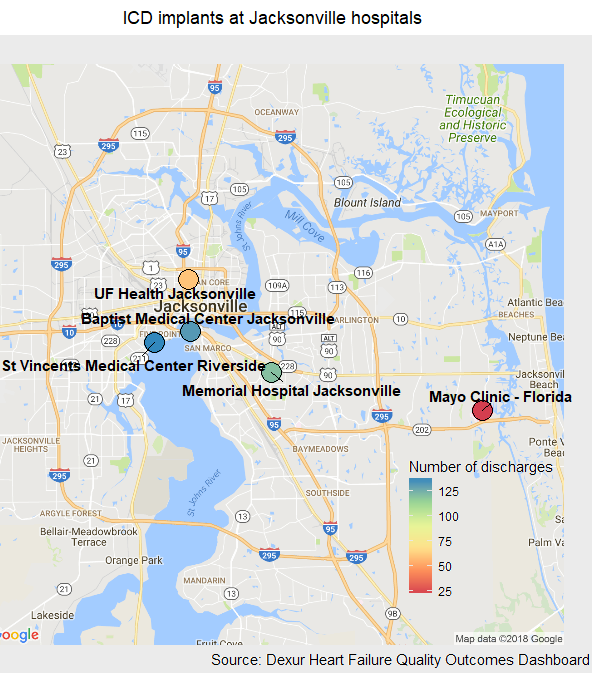
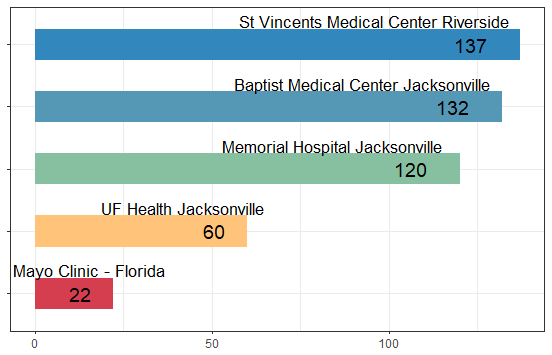
Hospitals in Jacksonville had relatively similar all-cause 30-day readmission rates for patients with ICD implants. Rates ranged from 20% at St. Vincent’s Hospital Riverdale to 28% at Memorial Hospital Jacksonville. Mayo Clinic - Florida, which had only 22 ICD implants, had too few 30-day readmissions in ICD implant patients to report the rate.
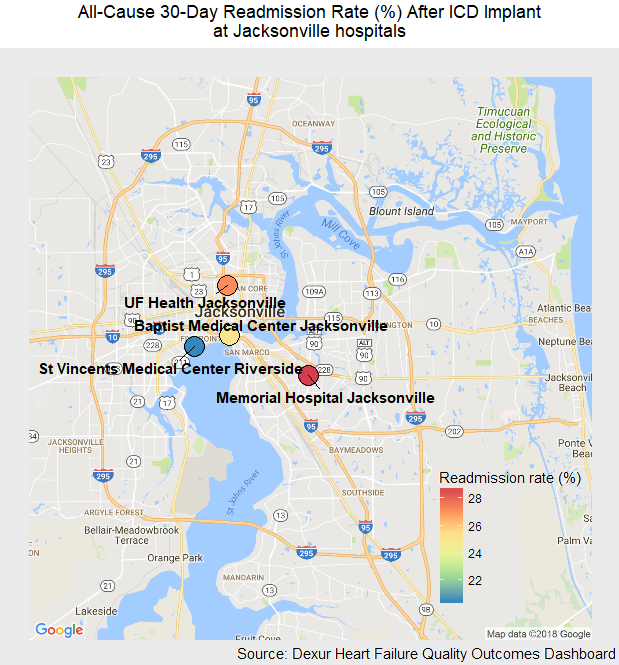
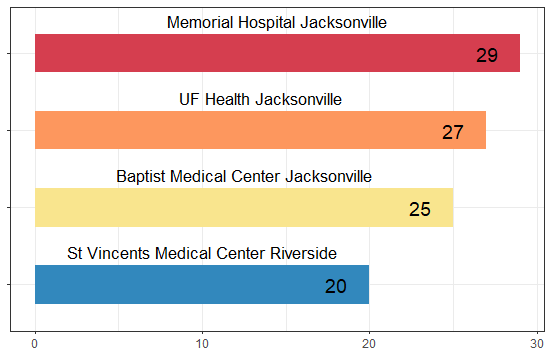
AICD Generator Procedures (DRG 265) and AICD Lead Procedures (DRG 245) also provide a lens on complications of ICDs. These DRG codes are used for insertions and revisions of ICDs. UF Health reported the fewest DRG 265 cases, and St. Vincent’s Riverside the most.
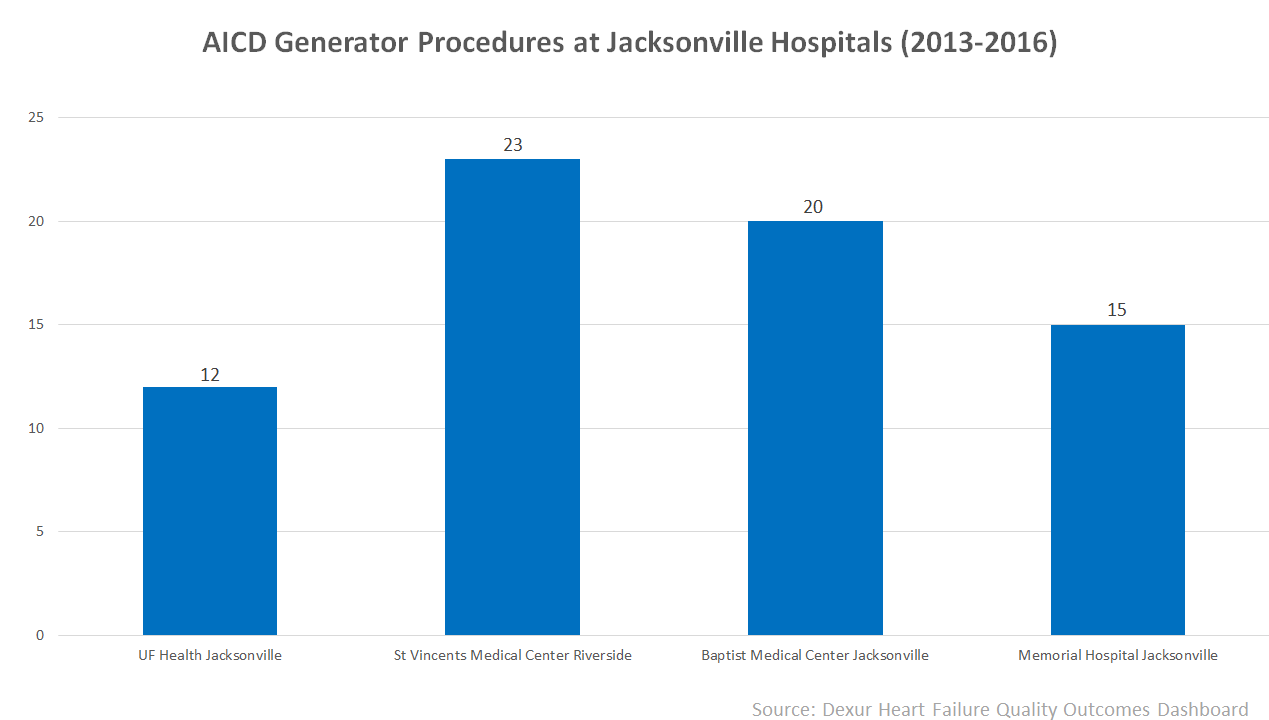
St. Vincent’s reported a further 15 AICD Lead Procedures, the only hospital in Jacksonville to report at least 10. A high need for revision or readmissions in ICD patients may indicate gaps in protection from sudden cardiac arrest which WCDs could help fill.
WCDs are most often used in patients with left ventricular ejection fraction under 35%, also known as heart failure with reduced ejection fraction. Jacksonville hospitals differ in the rates of HFrEF patients they see and readmission rates. Their readmission rates are close to the state and national averages.
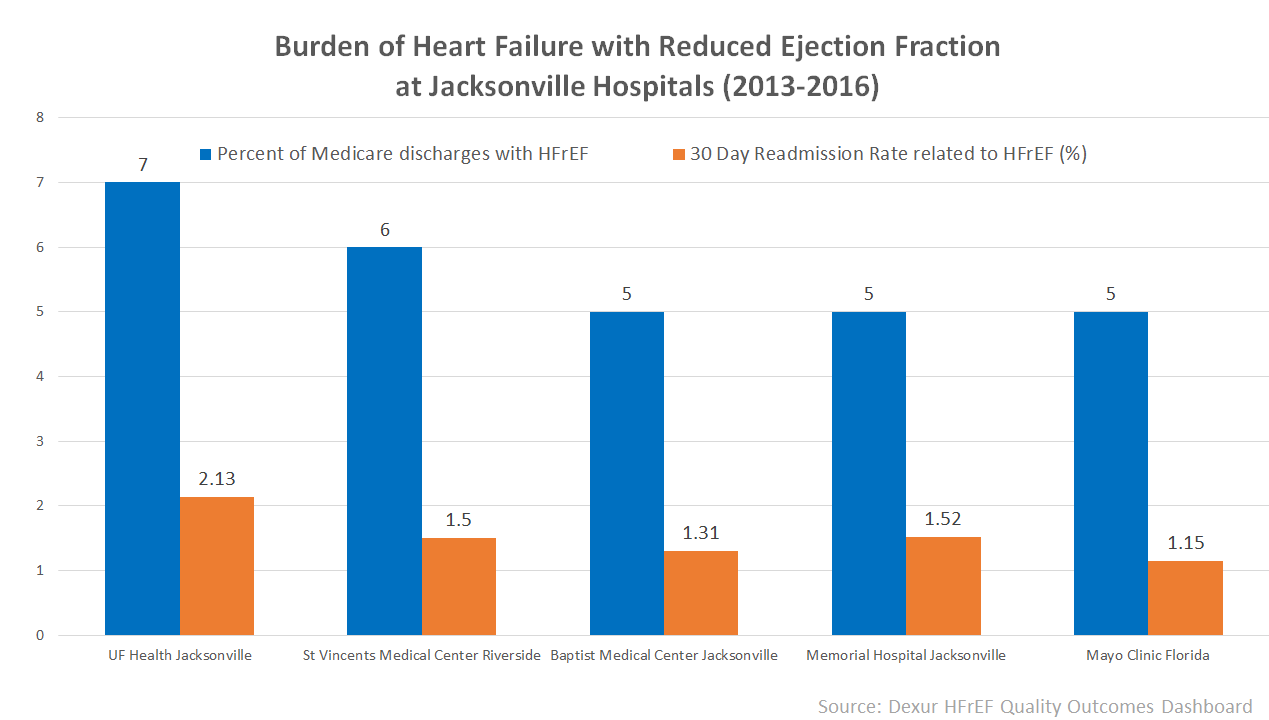
DEXUR PRO MEMBERS GET ACCESS TO:
- Total discharges
- Discharges after exclusion for ICD patients
- All-cause 30 day readmissions for ICD patients
- 30 day readmissions with heart failure for ICD patients
- 30 Day HF readmission rate with heart failure for ICD patients
- Florida 30 Day HF readmission rate for ICD patients
- National 30 Day HF readmission rate for ICD patients
From 2013-2016 for St. Vincent’s Medical Center Riverside, Baptist Medical Center Jacksonville, and Memorial Hospital Jacksonville.
- Total Medicare Discharges
- Total Medicare Discharges After Exclusion
- Total Medicare Discharges With HFrEF
- Total Medicare Discharges With HFrEF After Exclusion
- All Cause 30 Day Readmissions
- 30 Day Readmissions related to HFrEF
From 2013-2016 for all patients at UF Health Jacksonville, St. Vincent’s Medical Center Riverside, Baptist Medical Center Jacksonville, Memorial Hospital Jacksonville, and Mayo Clinic Florida.
ABOUT THE AUTHOR
